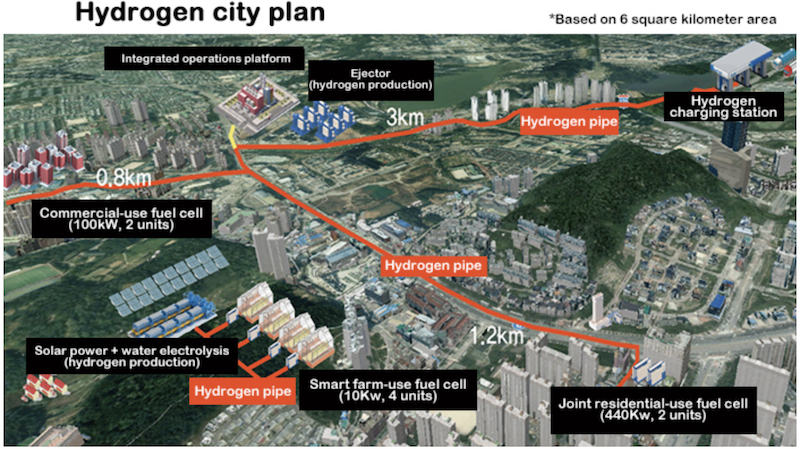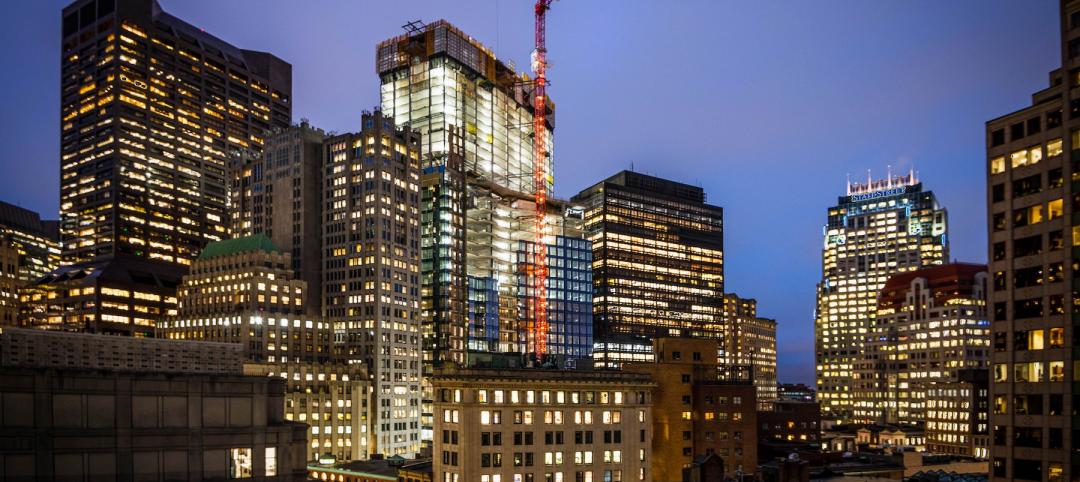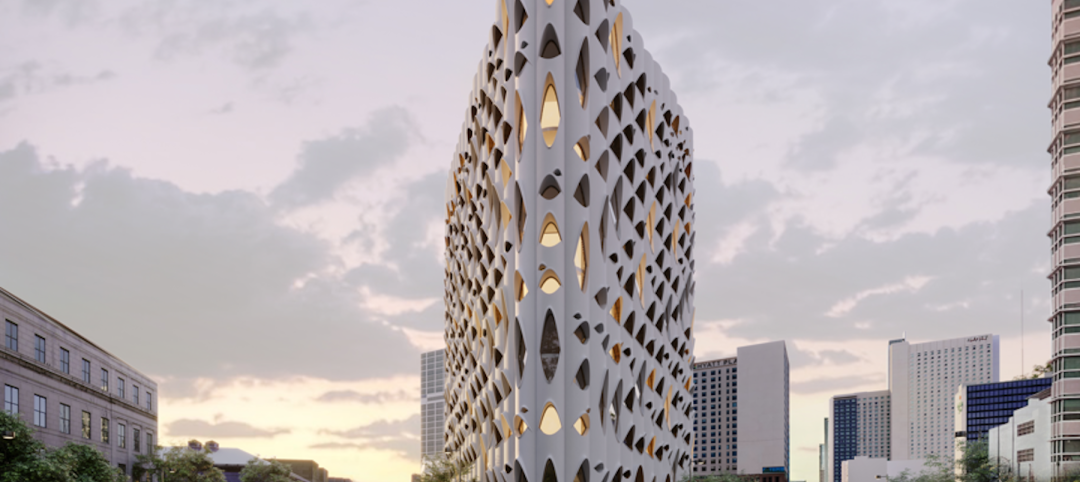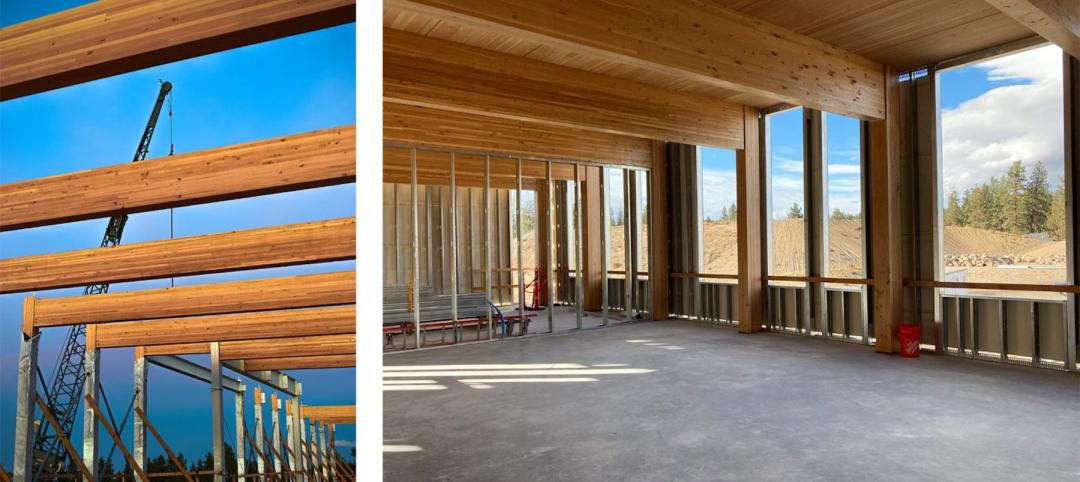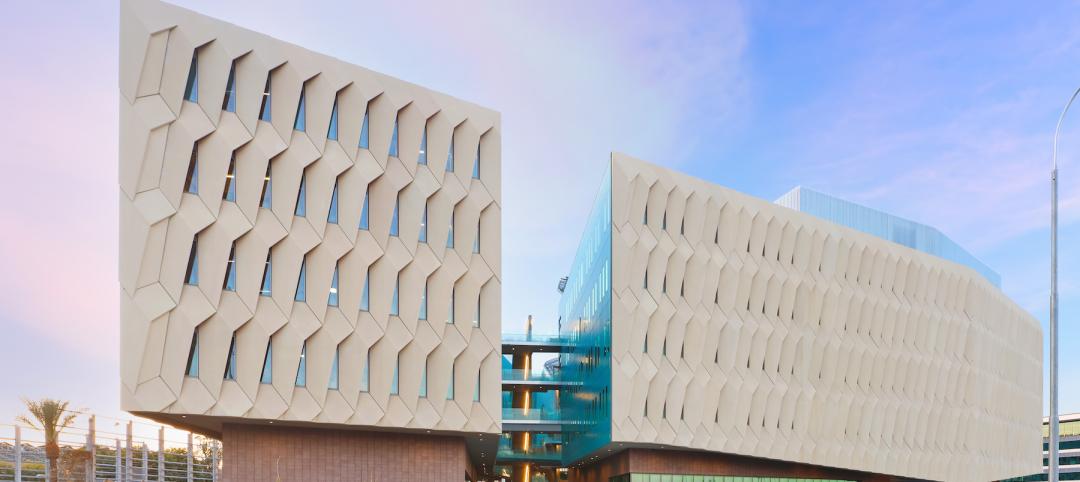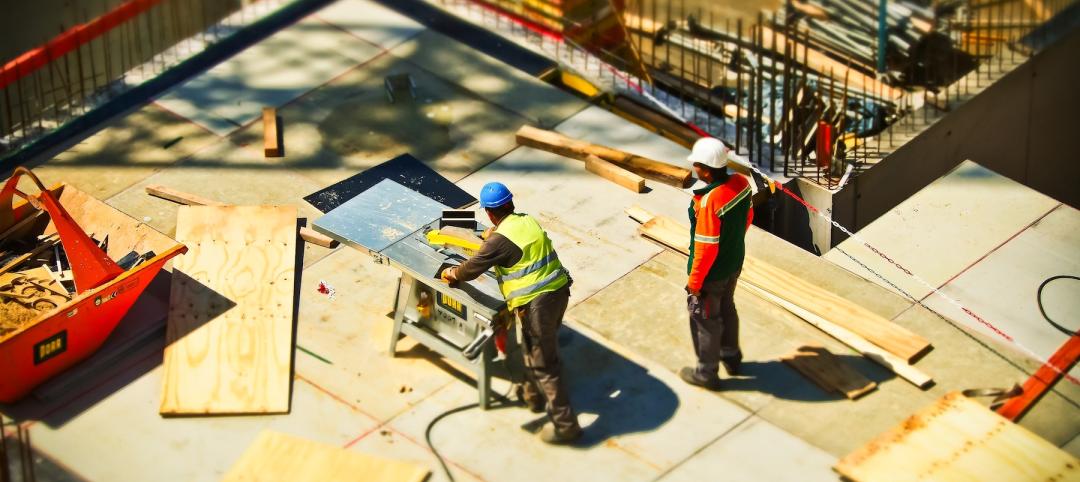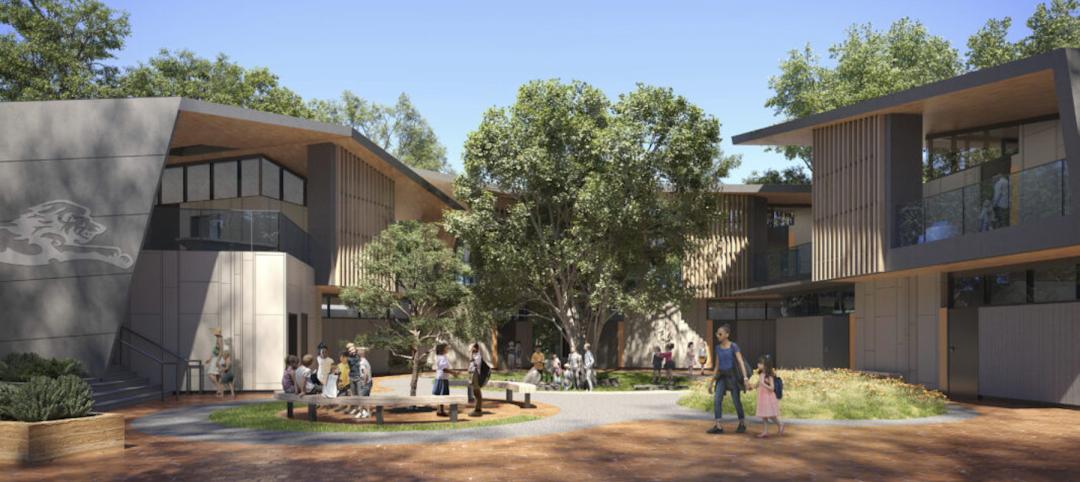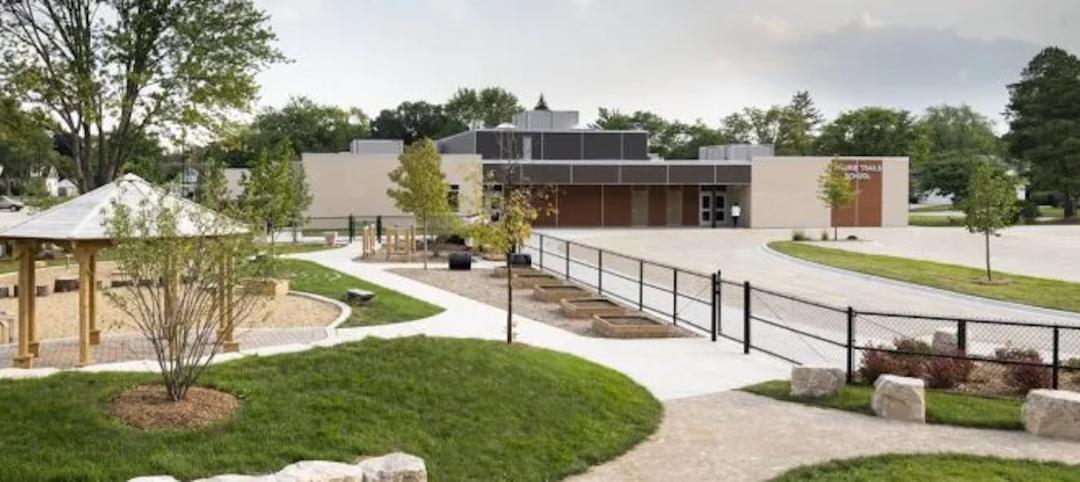South Korea has announced its intentions on creating three hydrogen-powered cities by 2022. The country hopes to select the cities it will transform to hydrogen power by the end of the year.
The cities will included 9.9 megawatt fuel cells, 670 hydrogen fuel-cell electric passenger vehicles, and 30 hydrogen buses. Hydrogen charging stations will be built to accommodate the increase in hydrogen fuel-cell vehicles.
See Also: Passive House senior high-rise uses structural thermal breaks to insulate steel penetrations
The pilot projects are part of the country’s larger plan to transform 10% of its cities, counties, and towns to hydrogen power by 2030, and 30% of them to hydrogen by 2040. The Korean Ministry of Trade, Industry, and Energy believes reaching these hydrogen goals will become the new growth engine for the Korean economy and gain a share in the world’s growing hydrogen markets, according to The Korean Herald.
The three cities will be offered benefits and incentives for the residents in exchange for the construction of the hydrogen cities, as there are still some questions regarding safety and stability.
Related Stories
| Aug 16, 2022
DOE funds 18 projects developing tech to enable buildings to store carbon
The Department of Energy announced $39 million in awards for 18 projects that are developing technologies to transform buildings into net carbon storage structures.
| Aug 15, 2022
Boston high-rise will be largest Passive House office building in the world
Winthrop Center, a new 691-foot tall, mixed-use tower in Boston was recently honored with the Passive House Trailblazer award.
Hotel Facilities | Aug 12, 2022
Denver builds the nation’s first carbon-positive hotel
Touted as the nation’s first carbon-positive hotel, Populus recently broke ground in downtown Denver.
Energy Efficiency | Aug 11, 2022
Commercial Energy Efficiency: Finally “In-the-Money!”
By now, many business leaders are out in front of policymakers on prioritizing the energy transition.
| Aug 8, 2022
Mass timber and net zero design for higher education and lab buildings
When sourced from sustainably managed forests, the use of wood as a replacement for concrete and steel on larger scale construction projects has myriad economic and environmental benefits that have been thoroughly outlined in everything from academic journals to the pages of Newsweek.
Sponsored | | Aug 4, 2022
Brighter vistas: Next-gen tools drive sustainability toward net zero line
New technologies, innovations, and tools are opening doors for building teams interested in better and more socially responsible design.
| Aug 4, 2022
Newer materials for green, resilient building complicate insurance underwriting
Insurers can’t look to years of testing on emerging technology to assess risk.
| Aug 4, 2022
Newer materials for green, resilient building complicate insurance underwriting
Insurers can’t look to years of testing on emerging technology to assess risk.
Sustainability | Aug 4, 2022
To reduce disease and fight climate change, design buildings that breathe
Healthy air quality in buildings improves cognitive function and combats the spread of disease, but its implications for carbon reduction are perhaps the most important benefit.
K-12 Schools | Aug 1, 2022
Achieving a net-zero K-12 facility is a team effort
Designing a net-zero energy building is always a challenge, but renovating an existing school and applying for grants to make the project happen is another challenge entirely.


